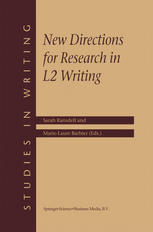

Most ebook files are in PDF format, so you can easily read them using various software such as Foxit Reader or directly on the Google Chrome browser.
Some ebook files are released by publishers in other formats such as .awz, .mobi, .epub, .fb2, etc. You may need to install specific software to read these formats on mobile/PC, such as Calibre.
Please read the tutorial at this link: https://ebookbell.com/faq
We offer FREE conversion to the popular formats you request; however, this may take some time. Therefore, right after payment, please email us, and we will try to provide the service as quickly as possible.
For some exceptional file formats or broken links (if any), please refrain from opening any disputes. Instead, email us first, and we will try to assist within a maximum of 6 hours.
EbookBell Team

0.0
0 reviewsGERT RIJLAARSDAM UniversityofAmsterdam & Utrecht University, the Netherlands Multilingualism is becoming the default in our global world. The present-day global citizens use different languages in different situations. Apart from their mother tongue, they learn languages that give them access to other regions, nations, and worlds. In all countries ofthe European Union, for instance, at least one foreign lan guage is mandatory in secondary schools. Most students are taught English as a for eign language, the lingua franca in Europe. In large parts of the USA, students move from Spanish to English schooling. In parts of Canada, bilingual education is stan dard. In Catalonia (Spain) children learn Catalonian and Spanish, in Hong Kong English and Chinese. The smaller the world becomes, the more languages are used and learned. For writing process research, this development into multilingualism entails at least two challenges. First ofall, studying the relation between writing in L1 and L2 provides an opportunity for collaborative studies, in different language settings. Second, the issue ofgeneralization of findings comes to the fore. It becomes evident now that we have unjustly neglected this issue in writing process research. We for got to ask whether it is feasible to talk about 'writing processes' in general, without referring to the language of the written texts, and without taking into account the educational and linguistic culture in which these texts originate.